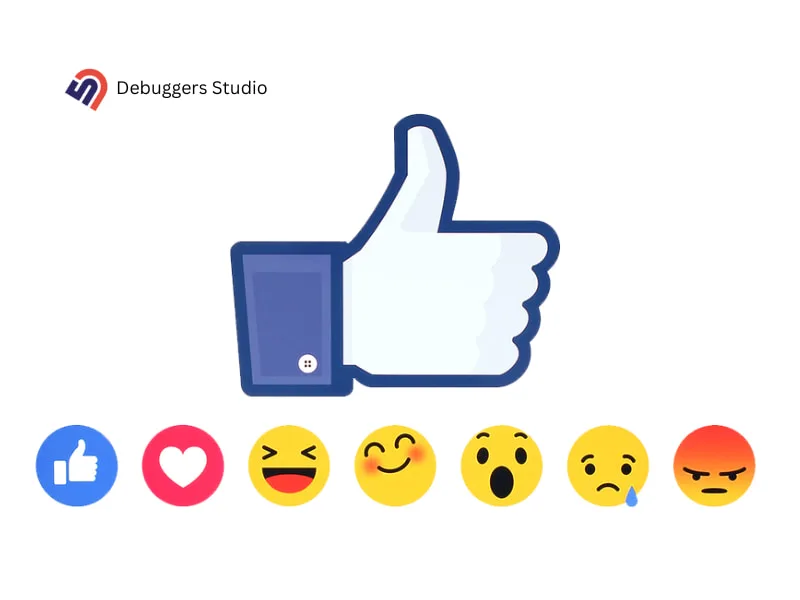Facebook, with over 2.9 billion active users, stands as one of the world’s most popular social media platforms. Its no secret that Facebook pages are essential for businesses that wants to expand their audience reach.
Every ambitious marketer should include social media SEO in their toolbox. Yet, lot of businesses are not achieving the desired success with their Facebook pages. This might happened because of ineffective strategies, a lack of audience interaction, or profiles that aren’t optimized for SEO.
Today, we’re focusing on Facebook SEO tactics. Yes, we’re revealing the hidden ingredients for successful Facebook SEO.
This guide will provide you ins and outs of Facebook SEO, also 12 actionable tips you can start using right now to boost your reach.
Bonus : Follow Pro tips on Facebook, Instagram, YouTube, TikTok, Twitter, and LinkedIn to enhance the visibility of your posts among a wider audience.
Facebook’s Search engine Rise to Number 2 and Its Revenue Impact
Facebook’s search engine has climbed to the second spot in online searches, and this is making a big difference in how much money the company makes today. A huge number of people, about 2.98 billion, use Facebook every month. That’s almost 37% of the entire world’s population. This huge number of users is helping Facebook make a lot of money.
One important thing to note is that, on average, a post on Facebook only reaches about 5.2% of the people who like the Page it’s posted on. Even though this seems low, because Facebook has so many users, that 5.2% still means a lot of people see the posts. This is why Facebook’s advertising platform is so valuable for businesses and advertisers. It lets them reach a massive global audience.
Another reason Facebook is making more money is because lots of people now use its search engine when they want to find things like information, products, or services. This change in how people use Facebook has given businesses a great chance to advertise to the right audience and make more money through tailored ads.
The Influence of Your Social Network in Facebook search engine
The influence of your social network on Facebook’s search engine is significant. When you search for something on Facebook, the results are not just based on keywords; they’re also influenced by what your friends and connections are engaging with.
If your friends like or comment on a post, page, or business related to your search, it’s more likely to appear higher in your search results. This is because Facebook values your social connections and wants to show you content that is relevant to your network.
Your search results also can be influenced by groups you’re a part of, events you’ve attended, and pages you’ve liked. All of these factors help Facebook’s search engine tailor results to your interests and connections, making your search experience more personalized and useful. So, the more active and engaged your social network is on Facebook, the more it can impact the results you see in the search engine.
11 Potential Ranking Factors for Facebook Search Engine
While the exact algorithm for Facebook search engine ranking is not disclosed, these factors likely to have impact :
#1. Total Number of Likes for a Single Piece of Content

When a post gets a high number of likes, it signals to Facebook that the content is popular and well-received by users. Facebook’s search algorithm takes this popularity into account when determining how to rank the post in search results. Essentially, the more likes a post has, the higher it’s likely to rank in search.
Why is this important? It’s because likes indicate user engagement and interest. When many people click that “like” button, it suggests that the content is valuable, informative, or entertaining. Facebook’s goal is to provide users with the most relevant and engaging content, so posts with numerous likes are given priority in search results.
#2. Total Facebook Likes for a Specific Domain
It means how many people like the content from a certain website on Facebook. This measures how popular and interesting the website’s stuff is on Facbook.
For example, if a news website consistently publishes articles that users find interesting and valuable, these articles are likely to receive a significant number of likes on Facebook.
Why is this important? Facebook values content that resonates with users, and a higher number of likes indicates that a particular website consistently produces content that Facebook users appreciate. As a result, when users search for topics related to that domain, its content may rank higher in Facebook’s search results.
#3. User Engagement
User engagement is all about how much people interact with and respond to a piece of content, like a post or article, on Facebook. This interaction is really important because it helps decide how high that content shows up when you search for it on Facebook.
Here’s how it works: When a user shares a post, others can like, share, and comment on it. The more likes, shares, and comments a post gets, the more Facebook’s algorithm consider it as valuable and relevant to users. As a result, this particular content has a higher chance of appearing at the top of search results when people search for similar keywords.

For instance, if a user shares a news article and it receives many likes, shares, and comments, Facebook’s search engine is more inclined to display that article when people search for topics related to it.
#4. Regional Engagement (Likes, Shares, and Comments within a Specific Location)
Depending on the search query, understanding location is important. Facebook uses various things like your IP address, profile location, GPS (on mobile), and check-ins to figure out your geographic location accurately.
This helps Facebook provide relevant search results based on your country, region, city, or town. This feature also powers Facebook Local Search.
Also, Facebook can see how many likes, shares, and comments a local business gets from people in a certain area.
For instance, when you’re searching for a steakhouse in Princeton, New York, or Philadelphia, Facebook considers the engagement by location to determine which options should appear in the search results. This way, Facebook ensures that the search results are tailored to your current geographic context.
#5. Engagement within a specific category, industry, or niche
The amount of likes a page has, whether it’s a 10000 or a 100, doesn’t automatically determine how popular it is on Facebook. It’s kind of like how Google decides rankings, it’s not as simple as it seems.
Facebook considers various factors like :
– the topic
-Category
-How recent the content is
-And how relevant it is to determine where it should appear in search results.
Sometimes, a page does well on Google search even if it doesn’t have super high SEO scores. It might even outrank pages on more popular websites. Facebook works in a similar way, where it tries to figure out what things are connected to a specific piece of content and then shows it to the people who are looking for those things.
#6. Engagement Within Your Group of Friends
Your Facebook friends play an important role in shaping what you see in search results. If a post or page has content that aligns with your friends’ recent activity, such as updates, likes, and shares, it’s likely to show up in your search results.
Facebook aims to provide you with personalized search results, as long as the content is high-quality and can answer your query effectively.
Facebook might give more importance to specific actions from your friends. For example, an original post from a friend might carry more weight than a simple “like,”. Shares and comments on a particular piece of content may suggest a higher interest in that topic.
#7. Engagement Within Friends of Friends
Sometimes, the friends of your friends could provide valuable answers to your queries. You might have more in common with them than you realize.
While it may not be the most dominant signal for the Facebook search engine, it can certainly make a difference.
For example, if I have friends in the SEO industry, and they are connected to others involved in SEO whom I haven’t connected with yet, their interests could influence the search results I see on Facebook.
#8. Engagement with Content (Click-Through and Dwell Time by Demographic, Location, and Interest)
When Facebook sees that people often click on and engage with a piece of content, it understands that users find it interesting. This could lead Facebook to give that content a higher score in terms of relevance.
Conversely, if Facebook notices that very few people click on a piece of content, it might mean users aren’t interested in it. This could have a negative impact on the content’s ranking.
Facebook can also analyze how users interact with different types of media, like videos and photos. These interactions can affect how photos and videos are ranked in search results.
#9. Brand Page Influence (Engagement by Brand Page)
The number of likes and engagement on a brand’s Facebook page can impact the ranking of their content . It’s kind of like measuring how important a brand’s page is on Facebook, rather than on other websites.
You can use Page Insights to gather information on metrics like “People Talking About this Post,” “Virality,” and “Engaged Users” for each page post. Since Facebook already keeps tabs on these metrics, it can evaluate a brand page based on its history.
#10. On-page/On-Post, Optimization
Facebook considers a familiar SEO factor: the content’s relevance. It looks at posts, updates, and shares, as well as the page it leads to, to understand what the content is about. This includes things like the main ideas, important words, and categories. This helps Facebook decide how well the content matches a search question.
Facebook checks the text in the post, status updates, and shares. They also look at the title and description of what is being shared.
Facebook even looks at the comments that users make about the content, whether it’s on Facebook or somewhere else. All of this helps Facebook understand what the content is about, what categories it belongs to, and what keywords are important.
#11. Influencer Engagement
I wouldn’t forget to mention influencers when discussing social search! Just like not all website links are the same, not all Facebook updates (likes, shares, comments) are equal either.
If someone with 1,200 friends and 45,000 likes on their brand page shares content, Facebook might give them more importance than someone new to the platform with fewer connections and a weaker history. Influential users can have a more significant impact on how content is perceived and ranked on Facebook.
Understanding the 11 potential ranking factors for Facebook’s search engine is essential for optimizing content visibility and engagement on this social media giant. Factors such as user engagement, regional and niche-specific interactions, brand page influence, and content quality all contribute to a dynamic search ecosystem.
FAQ
Do Facebook links help SEO?
While social signals from platforms like Facebook may indirectly influence SEO, the direct impact is limited. Focus on creating quality content and building backlinks for stronger SEO results.
How do I rank my FB page on Google?
To improve your Facebook page’s Google ranking, optimize the page with relevant keywords, complete business information, and regularly update content. Encourage user engagement and garner positive reviews.
How can I improve my FB business page?
Improve your Facebook business page by consistently adding new content, interacting with your followers, using attractive images, promptly replying to messages, and using targeted advertisements to reach more people.






